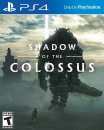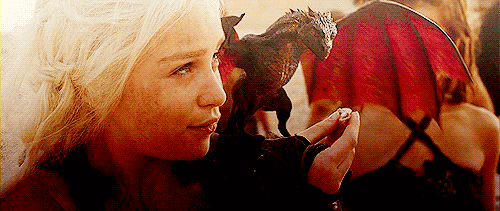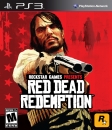1994 to me was one of the biggest standout years in the history of this medium and it's one I feel very strongly about because it includes two of my all-time favorite games. Let me start out with a little bit on what made those two games so special to me if I can:
Super Metroid received my vote in this thread. It's also going to be my pick for best game of the decade and ranked fifth last year on my list of all-time favorite games. I replay it every year and it never seems to lose its impact on me no matter how much it ages. It's an embarrassment of commercialism that this game wound up being among the worst-selling entries in the Metroid franchise. Today it's among the very most respected and few other games can be said to have inspired so many other titles. That right there is the textbook definition of a cult classic.
I've already shared a lot of thoughts about Super Metroid at length on several other threads and main page commentaries before, but my most detailed so far can be found here for those interested. To add some contextualization though, Super Metroid came out in April of 1994, early on in the year, at a time when I was in a very, very dark place, feeling quite alone in the world. Something about the depth of the isolation, the subtle but gnawing sense of fear, that this game's atmosphere conveyed in its varied strokes and degrees and the way these shifted so organically from one to another as you traveled to its different areas, felt relatable to me at that moment in time in a way that I struggle to even put into words here. It felt like this was my world -- my inner world -- in all of its nuances, full of secrets stored everywhere that could help me, and conquering the challenges of Zebes felt like mastering that world of mine; like finding a sense of hope that my own newfound, all-pervading sense of emptiness, hopelessness, and fear could be conquered. With help. And that last note is what separates Super Metroid from even Metroid Prime in my personal opinion. There's a scene near the end of the game where...
Spoiler!
...a baby Metroid sacrifices itself to give Samus the power she needs to defeat Mother Brain...
...which completely broke my heart when I first saw it because I couldn't imagine anyone being willing to lay down their life for someone as rotten as I had become. As fate would have it, I too wound up finding the truest friend of my childhood later that same year, in a totally unexpected place, which was exactly what I needed more than anything in the world. I have indeed wound up learning to look for friends in unexpected places throughout my life and doing so has often served me well.
What I'm trying to say is that, to me, Super Metroid was more than just a fun game or just a nicely enhanced expansion on the premise and setting of the first game and more than just a brilliantly-structured game designed to be "broken", designed to give you more freedom of progression the more you mastered it. It was also immersive in a way so perfectly suited to my mental state at the time as to feel transcendent, like it was made for me personally somehow. And to one degree or another, I revisit that place of transcendence whenever I revisit this game. It just somehow manages to retain that magic indefinitely for me. It's an experience that just never really ages (unlike me  ) and reminds me there is hope; that I can do this. Sorry if that sounds cheesy, but it's true.
) and reminds me there is hope; that I can do this. Sorry if that sounds cheesy, but it's true.
But like I said, I've discussed Super Metroid a lot before. One game I haven't discussed as much before though is Final Fantasy VI, which would be my runner-up choice here and also remains one of my absolute favorite RPGs of all time, second only to Undertale. In fact, Final Fantasy VI was actually my favorite game ever at the time and I want to share a bit of why that was if you'll permit me.
Known originally as Final Fantasy III here in the U.S. because it was only the third entry in the franchise to see an American release up to that point, FF6 came out later in the year here in this country, seeing a Stateside release in October. I was in a different place by the point in time, but still hardly anything other than depressed overall, largely because I feared the prospect of losing my newfound companion and couldn't imagine my life without her and didn't want to. My So-Called Life, which was basically Beverly Hills 90210 but for the freaks instead of the jocks and cheerleaders, was my favorite TV show at the time and something I'd often break for episodes of in-between FF6 sessions.
Structurally, the game is divided into two acts that feature a large, rotating cast of "main characters" if you will, but which are respectively anchored by the story arcs of Terra Branford and Celes Chere respectively. The first act is largely linear, the second much more open-ended. (Earned freedom is more appreciated, the thinking goes. It also makes for much greater narrative cohesion here than would otherwise be possible.) It takes place in a bold new context for the franchise, and for contemporaneous RPGs in general. Whereas RPGs up to that point had tended to draw on Dungeons & Dragons for inspiration either directly or indirectly, FF6 really broke out of that type of mindset in a big way, by replacing the genre-standard medieval settings with steampunk one, by making most of the characters in your party almost equally relevant to the story to the point that it becomes difficult to even single out definite lead characters, and by simply having the aforementioned second act, among many other things. And all of it is driven by empathy.
Final Fantasy VI is a game about navigating loss and about rejecting the nihilistic belief that life has no meaning. I literally can't think of another released up to that point that tackled subject matter like that. FF6 may well have the been the very first. It hit home hard for me, especially when it came to the first character you play as, Terra Branford, and the main villain, Kefka Palazzo. Let's start with Terra.
Terra starts out this game under a form of mind control. Once she breaks free of that, she has no direction in life because that's all she's ever known. She's given a direction by the first people she meets -- one of helping a group of resistance fighters defeat an encroaching, magic-powered empire -- but she doesn't necessarily believe in that cause herself so much as she simply wants not to be hunted down and captured again. Upon discovering that she's...
Spoiler!
...half-human and half-esper...
...she feels so far removed from both worlds that created her that she wonders if she's even capable of love because there doesn't seem to be anyone she truly relates to. She's never sure whether other people care about her either or just want to use her for their own purposes. When she experiences a kind of love for the first time, she's unable to even recognize what it and it cripples her from going on fighting. She's having an existential crisis. Only when a challenge to her new, freely chosen role in life emerges does she find the will to fight again, realizing that she does in fact love others. This realization gives her the confidence to reveal her other form, whereupon she immediately finds love and acceptance by those around her in turn. And that acceptance, the realization that others care about her too, motivates her to resume the quest for a better world, for them and their future.
What I was going through at the time, and still am, was later diagnosed as borderline personality disorder, which is characterized centrally by a loss of one's sense of identity due to the development thereof being disrupted by childhood trauma. I'm pretty sure you can instinctively see the connection that I drew between my own situation and that of Terra Branford just from this broad and general description. What's more difficult to convey is how much it meant simply to know that somebody else saw me, cared about people like me, and seemed to have more faith in my potential for love and goodness than I did myself. Terra's story arc literally helped me figure out that what I was experiencing in my own life at the time was a kind of love and motivated me to reveal something "special" about my own self (spoiler: I'm gay) to the one I trusted the most. I wound up with my first girlfriend.
The villain, Kefka, on the other hand, seemed as like my dark side; the part of me that was full of doubt about my life or life period having any meaning or value. Kefka and his Joker-inspired psychotic track in so many ways is just Terra without friends, allies, and loved ones. He exists narratively here as a kind of testament to the important of those things. It's a pro-social game that, to briefly comment a bit on the state of the world as I see it, feels even more pertinent today than it did at the time in the light of our current social recession. Each of the major characters in this game finds their own value in the temporal and thus a reason to go on and that value invariably stems from social connections they forge in the process of striving to save or revive the world from forces like the Empire and Kefka. In real life, evil rarely finds this kind of dominating concentration in one person though. Kefka is better understood as representing a philosophy, a worldview, a way of thinking, that we as a species need to rally around defeating rather than as a metaphor for some physical person specifically. Well I'll get off my soapbox now.
Anyway, now let's talk about Celes. "Terra" is a word that literally means "Earth". "Celes" alludes to the celestial, or heavenly; the opposite of Earth. Earth is grounded. It's how we live. It nurtures and it's exploited by people. The celestial is not worldly. It represents our hopes and dreams. Yet Celes starts out with very little in the way of either. Where Terra's magical powers are natural, those of Celes are artificial, infused technologically. This dynamic doesn't at first seem to align with the way the characters are named. At first.
What Terra and Celes, the respective anchors of the game's two acts, have in common is a desired to be trusted, loved, and accepted. Where they differ centrally lies in the fact that Celes knows who she is and hates it. She's filled with self-loathing, believing herself unworthy of trust, love, and acceptance. It's only Locke's persistent interest in her well-being that drives her to go on. When Locke casts doubt on her motives, it wounds her beyond measure. In her song, uncoincidentally invoking celestial imagery, she sees herself as the darkness and Locke as the stars. And therein lies her name's real symbolism: a different aspect of the cosmos than one might expect.
Spoiler!
She must part from him. But life will go on even so because her heart won't give up. Foreshadowing, consider it. She goes on in act 2 initially because of Cid. He is her last link to value though. If he passes away, Celes attempts suicide in what definitely qualified as the most shocking, heart-wrenching scene in a video game up to that point. Failing though, she is motivated to go on by learning that Locke might still be alive. She goes on because her heart didn't give up on them. She leads a movement to rally the others and eventually finds Locke and learns that she's worthy of being loved.
This completes the symbolic triangle of forces. In direct or indirect relationship thereto, we meet a dozen other souls looking for reasons to go on in face of losses, big and small, and they find it in new connections that they forge. We all experience loss in the course of our lives. I've returned to FF6 when I lost my dad, then my mom, and when just I've felt lost and alone myself many times. In 1994, it helped me seek out new connections I didn't feel worthy of. I'm frankly not surprised when I read stories about FF6 saving people's lives (like this one).
Okay, I've spent a lot of time and energy discussing those two games now, sorry. 1994 was definitely more than just those two games. It's just those two have represented an entirely different league of value to me. There were so many other fun games that came out that year! The American version of Illusion of Gaia was among them and was my next favorite. Donkey Kong Country obviously served as Nintendo's compelling answer to a certain other talking animal hero with attitude (reviving Super NES sales in the process), and the blue blur himself got an adventure so big it had to be released as two games that you had the option to combine into one using a cartridge lock-on feature! What elevated Sonic 3 and Sonic & Knuckles above Sonic's earlier installments on the Genesis for me was the way in which these games narratively connected each zone and each act therein together, thus building out a kind of interconnected world for the first time in the series through the story of...
Spoiler!
...Knuckles' redemption.
Knuckles became my new favorite character in the Sonic universe.
It wasn't just a good year for the edgy or complicated hero though. It was also a good year for outright villainy. Entering their villain era, Nintendo gave us Wario Land, for example, heavily marketed on the promise that "you get to be the bad guy".  Not that you'd actually be stealing from the undeserving or something truly villainous like that or anything, but still. Wario. Speaking of greed and pirates though, a more compelling adventure could've been had on the Super NES in Uncharted Waters: New Horizons, which remains a fave SNES simulation game of mine. It was also a great year for humor, with Interplay coming out with enjoyably silly platformers like Earthworm Jim and Boogerman. 1994 even saw the release of my Godzilla game ever: Super Godzilla. Speaking of giant monsters, it was also the year that I found a new favorite tournament fighting game to call my favorite: Primal Rage!
Not that you'd actually be stealing from the undeserving or something truly villainous like that or anything, but still. Wario. Speaking of greed and pirates though, a more compelling adventure could've been had on the Super NES in Uncharted Waters: New Horizons, which remains a fave SNES simulation game of mine. It was also a great year for humor, with Interplay coming out with enjoyably silly platformers like Earthworm Jim and Boogerman. 1994 even saw the release of my Godzilla game ever: Super Godzilla. Speaking of giant monsters, it was also the year that I found a new favorite tournament fighting game to call my favorite: Primal Rage! 
 Okay okay, the quality of Primal Rage was kinda...mixed, not perfect, but come on, the premise wins by itself.
Okay okay, the quality of Primal Rage was kinda...mixed, not perfect, but come on, the premise wins by itself.
Sorry other computer gamers, I know I'm letting you down on this thread, but 1994 was pretty much the peak of the 16-bit era in gaming for my taste: the point in time right at the cusp of the generalized leap to 3D when the art was being perfected and titles coming out seemed to be increasingly polished and perfected. And with a new generation now visibly right around the corner, it was also a hopeful time in gaming.
Last edited by Jaicee - on 07 October 2023


































































